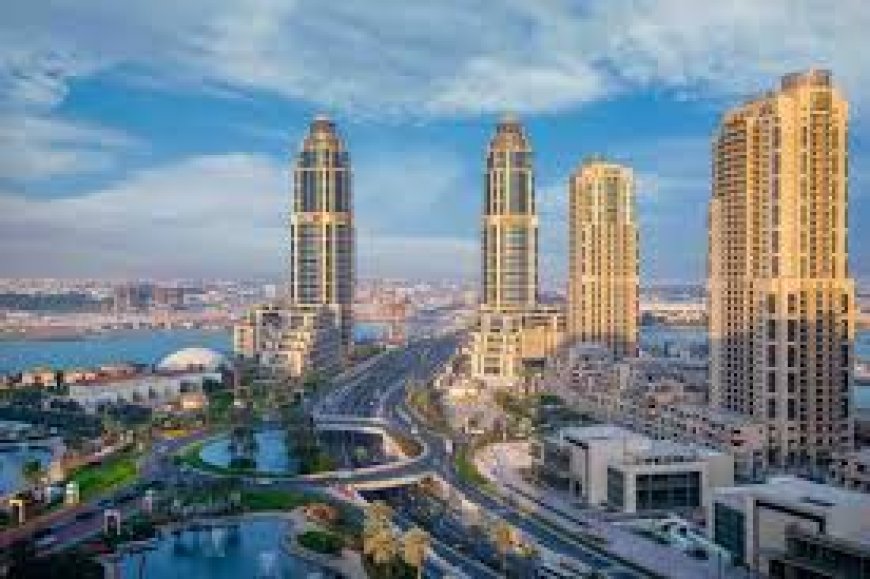What Factors Should You Consider Before Investing in Property in Qatar?
Discover key factors for investing in Qatar's property market, including market research, legal insights, economic outlook, infrastructure, and future prospects.

Investing in property in Qatar can be highly rewarding, given the country’s strategic location, robust economy, and ambitious urban development projects. However, as with any investment, it's crucial to consider various factors to maximize returns and mitigate risks. Here are key considerations for anyone looking to invest in the Qatari property market.
Market Research
Conducting thorough market research is the foundation of any successful property investment. Understanding the demand-supply dynamics, rental yields, and property price trends in different regions of Qatar is essential. For instance, areas like West Bay and The Pearl-Qatar are known for their high rental yields and potential for capital appreciation. Emerging areas like Lusail City and Al Wakrah are also gaining traction due to ongoing infrastructure developments.
Analyzing market trends involves looking at historical data, current market conditions, and future projections. Engaging with local real estate experts and agencies can provide valuable insights and help you make informed decisions. Additionally, attending property exhibitions and forums can offer a firsthand look at new developments and investment opportunities.
Legal Framework
Understanding the legal framework governing property investment in Qatar is crucial. The country has specific laws and regulations regarding property ownership, especially for foreign investors. While foreign ownership is allowed in designated areas such as West Bay Lagoon, The Pearl-Qatar, and Al Khor Resort, it’s important to be aware of the specific rules and restrictions that apply.
Qatar has made efforts to streamline its property laws and offer incentives to attract foreign investors. For example, foreign investors can enjoy benefits like tax exemptions and 100% ownership in certain free zones. However, it’s advisable to consult with a legal expert to navigate the regulatory landscape and ensure compliance with all legal requirements.
Economic Outlook
Qatar's economic outlook is a significant factor influencing property investment. The country's economy is heavily reliant on oil and gas revenues, but there has been a concerted effort to diversify the economy through sectors such as tourism, real estate, and finance. Major infrastructure projects, including those related to the FIFA World Cup 2022, have spurred economic growth and increased demand for real estate.
Investors should monitor key economic indicators, such as GDP growth, inflation rates, and employment figures, as well as government policies that could impact the property market. Qatar's National Vision 2030, which aims to transform the country into a knowledge-based economy, also presents long-term growth prospects for the real estate sector.
Infrastructure and Connectivity
The quality and availability of infrastructure and connectivity can significantly impact property values and rental demand. In Qatar, proximity to key infrastructure such as airports, metro stations, highways, schools, hospitals, and shopping centers is a major consideration for investors.
For instance, properties located near the newly developed Doha Metro and major road networks are likely to experience higher demand. Areas like Lusail City, with its planned Light Rail Transit (LRT) system and other modern infrastructure, offer attractive investment opportunities. Assessing the connectivity and accessibility of a property ensures that it meets the needs of potential tenants and buyers, thereby enhancing its value.
Types of Properties
Deciding on the type of property to invest in—whether residential, commercial, or mixed-use—is another critical consideration. Each property type comes with its own set of advantages and challenges. Residential properties, including apartments and villas, tend to have stable demand, especially in expatriate-friendly areas like The Pearl-Qatar and West Bay.
Commercial properties, such as office spaces and retail units, can offer higher rental yields but may be subject to market fluctuations. Mixed-use developments, which combine residential, commercial, and retail spaces, are becoming increasingly popular due to their convenience and integrated living experience. Understanding the market dynamics and demand for each property type will help in making the right investment choice.
Developer Reputation
The reputation and track record of the property developer are crucial factors to consider. Investing in projects by reputable developers with a history of delivering high-quality properties on time can mitigate risks and ensure the long-term value of your investment. Researching the developer’s past projects, financial stability, and customer reviews can provide insights into their reliability and credibility.
Financing Options
Exploring the available financing options is essential for effective investment planning. Qatar offers various mortgage options for both residents and non-residents, with competitive interest rates and flexible repayment terms. It’s important to compare different financing products and choose one that aligns with your investment goals and financial situation.
Future Prospects
Lastly, considering the future prospects of the property market in Qatar is vital. Factors such as urban development plans, population growth, and economic diversification efforts will influence property values in the long term. Qatar’s Vision 2030 and ongoing projects like Lusail City and Msheireb Downtown Doha are indicative of the country’s commitment to sustainable and strategic growth.
Conclusion
Investing in property in Qatar presents numerous opportunities, but it requires careful consideration of various factors. Conducting thorough market research, understanding the legal framework, assessing the economic outlook, and evaluating infrastructure and connectivity are key steps in making informed investment decisions. Additionally, choosing the right type of property, researching the developer’s reputation, exploring financing options, and considering future market prospects are essential for maximizing returns and minimizing risks. By taking these factors into account, investors can navigate the Qatari property market with confidence and capitalize on its dynamic growth potential.












